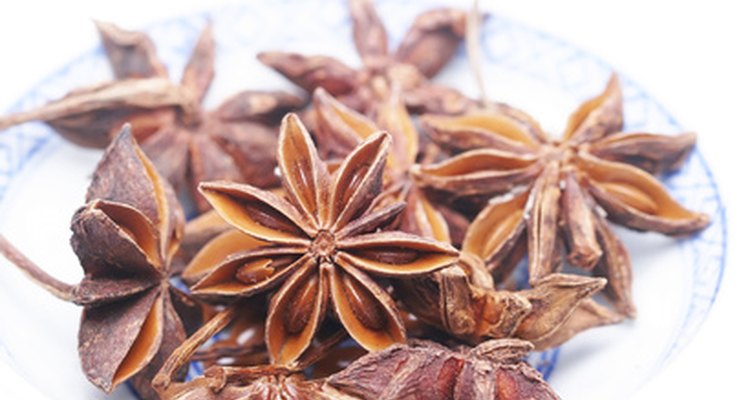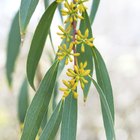
Native to the Mediterranean, anise is an herb related to carrot and parsnip. Anise is used as a flavoring for food and alcohol with a taste similar to licorice. The seeds of this herb are commonly used to treat indigestion and relieve nausea. It’s a mild diuretic, meaning it will release stored fluids from the body. Anise is also an expectorant, thinning mucus and improving conditions such as bronchitis, the common cold and asthma, according to Herbal Supplement Resource. Anise, used incorrectly or at too high a dose, can have negative side effects.
Nausea
Even though anise is used in the treatment of nausea, large doses can lead to severe nausea and vomiting, especially when ingesting anise oil as opposed to drinking an infusion, or tea, made out of anise seeds.
Neurotoxic
Taken in high doses, anise can damage the nerves and nerve tissue. This is called a neurotoxic effect, according to MedicineNet. Difficulty thinking, poor emotional control and headaches are symptoms of a neurotoxic effect.
Hormonal changes
Anise contains anethole, which is a plant hormone similar to estrogen. Frequent doses of anise can raise levels of estrogen. It is recommended that pregnant women and children avoid ingesting anise in any form. High estrogen levels can also lead to headaches.
Skin Irritation
Used externally, anise oil can treat mild acne and is an antioxidant. Pure anise oil can cause skin irritation, such as rashes. It will also cause photosensitivity, or a sun allergy. Photosensitivity can cause rashes or skin discoloration. Anise is usually mixed with other emollients to avoid this reaction.
Pulmonary Edema
Pulmonary edema is a condition in which fluid accumulates in the lungs, according to the Mayo Clinic. This condition will cause a severe shortness of breath and requires medical treatment. Ingesting as little as 1 milliliter of pure anise oil can lead to pulmonary edema, according to Herbal Supplement. When taken internally, anise seeds are recommended, as they contain a small percentage of oil.
Allergic Reaction
As with any drug or herb, allergic reaction is possible even with the minimum dose. Watch for skin rashes and a tightness in the chest. See a doctor immediately if you experience any swelling, especially of the tongue, or if you have difficulty breathing.
Related Articles

Can Borage Oil Help Acne?

Arnica for Acne

Peppermint Oil for a Cough

Burdock Root for Acne

Hop Allergies

Jojoba Oil Benefits

The Benefits of Lemongrass for Skin

Chamomile Essential Oil Benefits

What Are the Benefits of Ashwagandha in ...

Metamucil Dosage for Cats

What Is Aloe Good For?

Eucalyptus Oil & Acne

Toxicity of Peppermint Oil

Ingredients of Accutane

Pycnogenol and Acne

How to Reduce Acne Inflammation

The Use of Neem Juice in Skin Care as ...

What Are the Benefits of Extrapone ...

Cleansers for Rosacea That Unclog Pores

The Effects of Rubbing Alcohol on the ...
References
Writer Bio
Shawna Kennedy has been writing and editing professionally since 2004. She's published numerous articles online and two of her edited manuscripts have been contracted and published by Random House.
Photo Credits
a plate of anise stars image by Flashon Studio from Fotolia.com